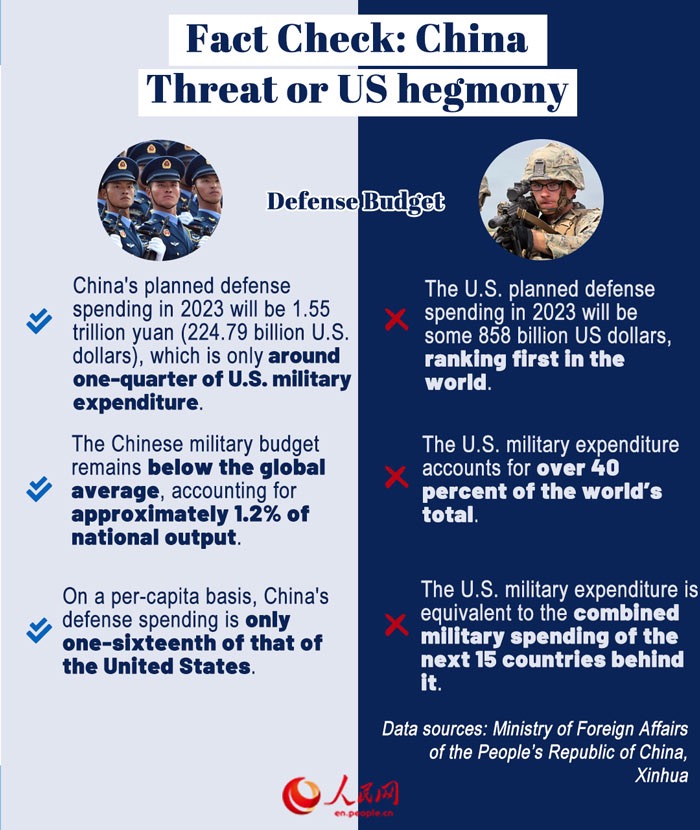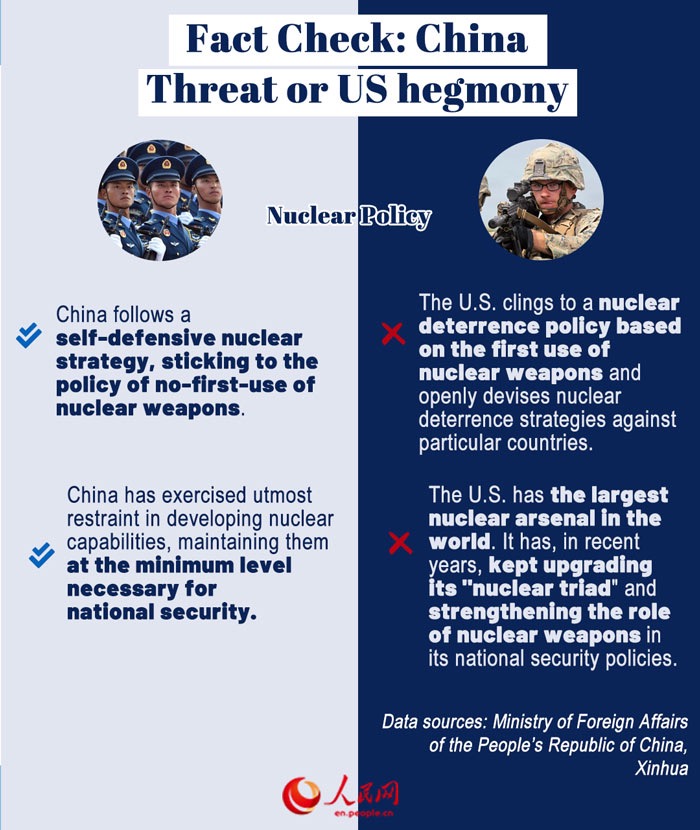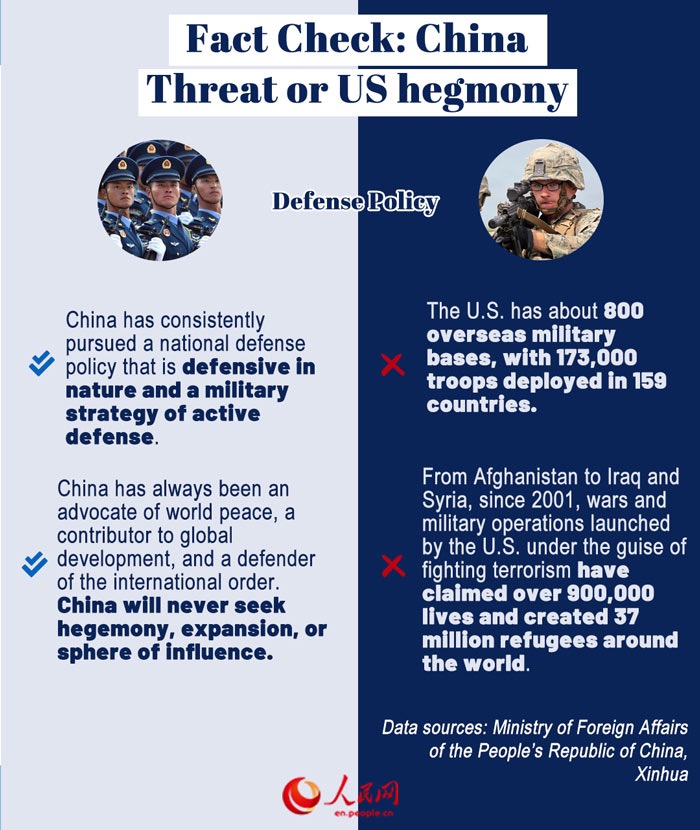Anyone attuned to the bombast rhetoric in Western society, would recognize these familiar arguments: China's military spending is excessively large; China is embroiled in an arms race with the U.S.; China's military expansion seeks to reshape the global order. Recently, a narrative portraying China's military development as a looming dominant force in Asia has gained popularity among Western media and politicians.
The question arises: Is the "Chinese military threat," amplified by certain Western politicians and media channels, based on solid grounds? Here are the facts collected by People's Daily Online.
Is China's military expenditure excessively large?

In March 2023, China announced a 7.2-percent increase in its defense budget, up slightly from last year's 7.1-percent increase. Unsurprisingly, this increase in China's military spending, which has long been the focus of Western scrutiny, drew widespread criticism from Western politicians and media outlets. They argue that China is spending too much on its military development. But is that true?
A country's defense expenditure is determined by various factors, including the demands of national defense, the size of its economy and its defense policy. As the world's second-largest economy and the most populous country with a vast land area, China is tasked with maintaining a substantial land border and navigating a complex maritime security environment. The increase in China's defense budget is appropriate and reasonable, considering the growth required to meet complex security challenges and for China to uphold its responsibilities as a major country.
Even Western media conceded that the Chinese military budget remains below the global average, accounting for approximately 1.2 percent of national output.
China's planned defense spending in 2023 will be 1.55 trillion yuan ($224.79 billion U.S. dollars), which is only around one-quarter of U.S. military expenditure, projected to be $858 billion in 2023. On a per-capita basis, China's defense spending is only one-sixteenth of that of the United States.
The U.S. military expenditure ranks first in the world, accounting for over 40 percent of the world's total and equivalent to the combined military spending of the next 15 countries behind it.
Is China engaging in the arms race and expanding its nuclear arsenal?

China is not, and will never be, engaged in any form of arms race. The country's nuclear policy is consistent and clear. China follows a self-defensive nuclear strategy, sticking to the policy of no-first-use of nuclear weapons. China has exercised utmost restraint in developing nuclear capabilities, maintaining them at the minimum level necessary for national security.
In contrast, the U.S. has the largest nuclear arsenal in the world. It has, in recent years, kept upgrading its "nuclear triad" and strengthening the role of nuclear weapons in its national security policies. To this day, the U.S. still clings to a nuclear deterrence policy based on the first use of nuclear weapons and openly devises nuclear deterrence strategies against particular countries. The U.S. is engaged in nuclear submarine cooperation with the U.K. and Australia, which violates the Treaty on the Non-Proliferation of Nuclear Weapons (NPT).
Is China pursuing military dominance to reshape the global order?

China has always been a staunch advocate of world peace, a contributor to global development, and a defender of the international order. It has consistently pursued a national defense policy that is defensive in nature and a military strategy of active defense. China's military development aims to safeguard national sovereignty, security and development interests and does not target any other country. The expansion of China's military power is nothing less than the growth of global forces for peace. No matter how much defense expenditure is invested or how modernized its armed forces are, China will never seek hegemony, expansion, or sphere of influence.
In stark contrast, the history of the United States is characterized by violence and expansion. The U.S. has about 800 overseas military bases, with 173,000 troops deployed in 159 countries. The U.S. abuses its military hegemony with the wanton use of force, which has led to humanitarian tragedies. From Afghanistan to Iraq and Syria, since 2001, wars and military operations launched by the U.S. under the guise of fighting terrorism have claimed over 900,000 lives and created 37 million refugees around the world.
编辑:天天